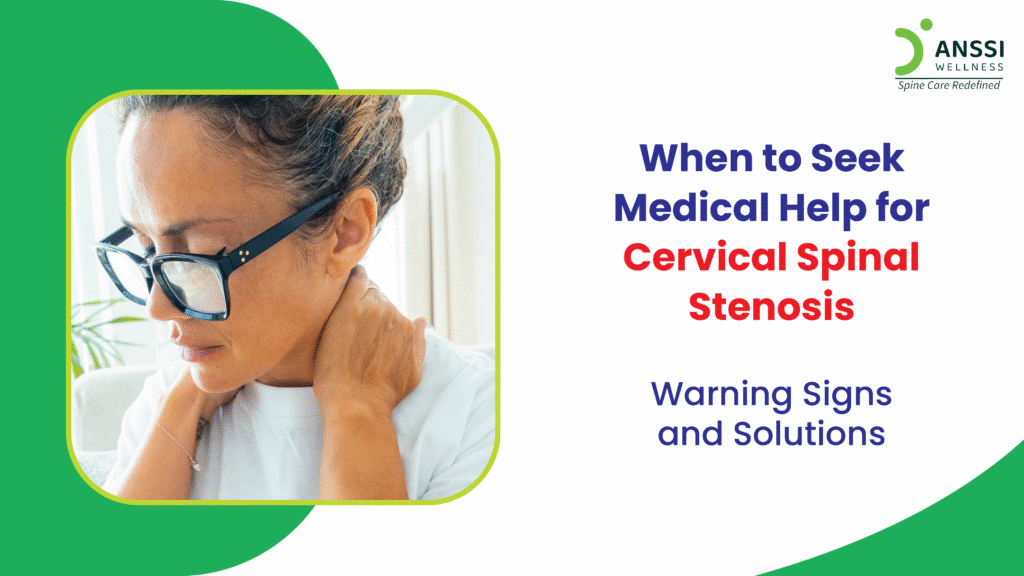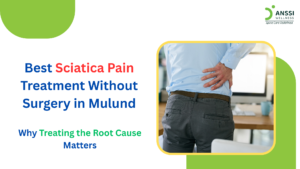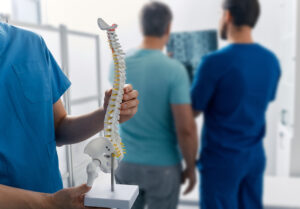Cervical spinal stenosis occurs when the spinal canal in the neck narrows, placing pressure on the spinal cord or nerve roots. This condition may begin subtly, often mistaken for ordinary neck pain, but early detection and intervention are critical. Addressing warning signs early can prevent nerve damage, maintain mobility, and preserve quality of life.
This guide will help you recognise the red flags and explore effective, non-surgical solutions.
Understanding Cervical Spinal Stenosis
In cervical spinal stenosis, age-related changes or spinal degeneration gradually constrict the protective canal surrounding the spinal cord. This pressure can damage nerves and disrupt communication between your brain and body.
Causes include:
- Age-related wear such as natural disc degeneration and arthritis
- Disc bulges or herniation, adding pressure
- Bone spurs (osteophytes) from osteoarthritis
- Thickened ligaments narrowing the canal
Common symptoms are:
- Persistent neck pain
- Numbness, tingling, or a “pins and needles” feel in the arms, hands, or fingers
- Muscle weakness wherein grip strength may weaken
- Coordination challenges, especially in the hands
Warning Signs Not to Ignore
While early symptoms echo common neck strain, certain signals warrant immediate attention:
- Progressive limb weakness: Trouble lifting objects or turning a doorknob is concerning.
- Balance or coordination issues: Frequent stumbling or difficulty walking straight.
- Fine motor difficulty: Trouble with buttons, typing, or pencil grip.
- Bowel or bladder issues: Though rare, this may indicate serious spinal cord compression.
- Constant or worsening neck pain: Especially when rest or over-the-counter painkillers offer no relief.
Ignoring these signs can allow irreversible damage to build over time.
When to Seek Medical Help
Don’t wait to act if you notice symptoms affecting everyday life or daily functions. When neck pain lingers beyond a few weeks or home treatments fail, make an appointment.
Seek urgent care if:
- Pain, numbness, or weakness intensifies rapidly.
- Difficulty walking or significant balance issues arise.
- You experience urinary or bowel changes.
A qualified spine specialist can evaluate your situation using imaging (like MRI) and neurological tests, and then recommend appropriate treatment.
Treatment Options and Non-Surgical Solutions
When caught early, cervical spinal stenosis often responds well to conservative, non-invasive care.
1. Physical Therapy and Posture Correction
Therapists guide you in:
- Strengthening exercises for deep neck muscles
- Postural training to reduce spinal canal pressure
- Mobility drills to maintain flexibility and reduce stiffness
These techniques reinforce the neck’s support system and improve alignment.
2. Non-Surgical Spinal Decompression Treatment (NSSDT)
This innovative treatment uses a decompression table to gently stretch your spine, retract bulging discs, and relieve nerve pressure.
Benefits include:
- Pain relief without surgery or drugs
- Enhanced nutrient flow for healing
- Gradual improvement in strength and mobility
Non-surgical spinal decompression treatment is well-suited for patients trying to avoid surgery.
3. Lifestyle Modifications and Ergonomic Support
Small daily changes can make a big impact:
- Ergonomic workstation: Position screens at eye level and use lumbar support.
- Frequent movement breaks: Stand, stretch, and walk for a few minutes every hour.
- Neck-friendly habits: Avoid cradling phones between shoulder and ear.
Regular movement helps reduce stiffness and encourages spinal health.
About ANSSI:
ANSSI Wellness focuses on improving the quality of life for patients suffering from spinal issues, aiming to provide relief where other conventional treatments have failed. Through advanced non-surgical spinal decompression treatment, ANSSI is committed to helping patients avoid surgery and recover in a safe, effective, and compassionate environment.
Connect with ANSSI Wellness on LinkedIn, Instagram, and Facebook for expert guidance.



